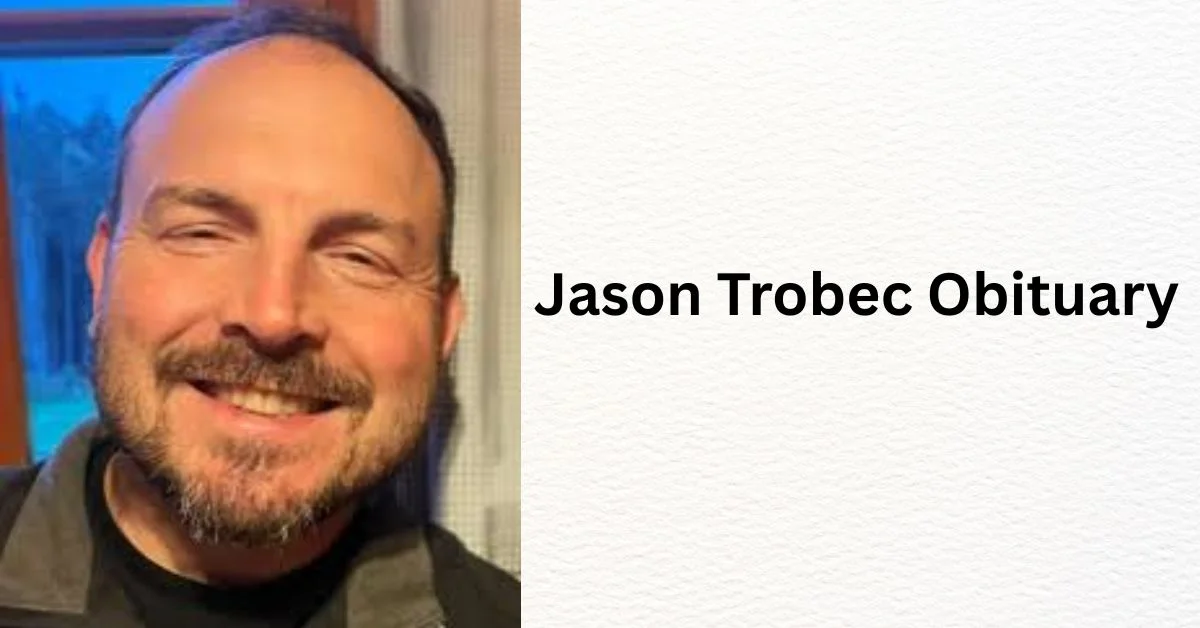Obituaries are often measured by accolades and milestones—a career, a title, a public recognition. Yet, the life of Jason Trobec, who passed away in the early months of 2025, offers a more profound measure. It is not in trophies collected or records set but in the quieter, enduring impact he left on his community, family, and the field he devoted himself to for over two decades. His story is one of steady, deliberate influence, a legacy that lives in the people he touched more than the pages of a résumé.
Early Life: Roots in the Midwest
Born in 1978 in Sioux Falls, South Dakota, Jason Trobec grew up with a deep connection to the land and the people who shaped it. His father was a teacher and high school football coach; his mother, a librarian. The values of discipline, curiosity, and compassion were instilled early, guiding him long before he found his professional calling.
A graduate of Roosevelt High School, Jason Trobec was both academically inclined and athletically gifted. He attended South Dakota State University on a scholarship, where he pursued a degree in biology. His fascination with natural systems and human health would become the cornerstone of his professional life.
Professional Life: Building Systems That Last
Jason Trobec’s career began in public health, initially as a community outreach coordinator. But it quickly became apparent that his skill set extended far beyond fieldwork. He had a gift for systems thinking—the ability to see how seemingly disparate pieces of a problem could be connected and resolved. This led him to specialize in health data analytics, and eventually, Jason became a lead coordinator for several rural health initiatives across the Midwest.
In 2010, he was instrumental in launching a cross-county data-sharing platform that helped local clinics better track patient outcomes and resource needs. This innovation, though not flashy, significantly improved care coordination and became a model replicated across several states. Colleagues remember him not only for his analytical acumen but also for his humility and ability to explain complex data in ways that made it accessible to everyone.
Personal Life: A Quiet Force
Jason married his college sweetheart, Emily, in 2004. Together, they raised three children in a home defined by quiet joy and enduring routines: Sunday pancake breakfasts, long walks through Falls Park, and volunteering at the local food bank.
Though never one to seek the spotlight, Jason Trobec was deeply involved in his community. He coached youth soccer, mentored high school science students, and served on the board of the local Habitat for Humanity chapter. His approach was always personal—he believed in showing up, in being present, and in listening more than he spoke.
The Challenges He Faced
Life was not without challenges for Jason Trobec. In 2017, he was diagnosed with a rare autoimmune disorder. The diagnosis was a jolt to a man who had spent his career helping others optimize their health. True to form, Jason responded not with despair but with resolve. He became an advocate for others facing similar diagnoses, starting support groups and pushing for better patient access to specialists.
His advocacy led to statewide changes in how chronic conditions were documented and treated within rural healthcare systems. Even in illness, Jason Trobec continued to influence policy, often testifying before committees and sharing his story to drive meaningful reform.
Legacy Through Education and Mentorship
Perhaps Jason’s most lasting contribution was his mentorship. He trained a generation of young public health professionals, emphasizing not just technical skills but ethical responsibility and community sensitivity. His former mentees now hold positions in state health departments, NGOs, and academic institutions, often citing his influence as pivotal in shaping their careers.
He also guest lectured at regional universities, always insisting that students understand the importance of connecting data to lived experience. For Jason, numbers were never abstract. They were the stories of real people and real communities.
Reflections From Those Who Knew Him
“He had this way of making you feel like the most important person in the room,” said longtime colleague Marie Langen, who worked with Jason on several health initiatives. “He was never in it for credit. He just wanted to make things better.”
His children remember him not just as a father, but as a guiding presence. “He taught us to ask good questions, to pay attention to the small things, and to always think about how our actions affect others,” said his eldest daughter, Julia.
A Death, A Legacy
Jason Trobec passed away quietly, surrounded by family, at the age of 47. His funeral was a testament to his influence. Hundreds gathered—colleagues, friends, patients, mentees. Stories were shared not of grand achievements, but of moments: a thoughtful note, a last-minute ride, a patient conversation.
In lieu of flowers, the family requested donations to the Jason Trobec Health Access Fund, a nonprofit initiative that will support rural healthcare workers in continuing education and innovation grants. The fund echoes Jason’s lifelong mission: to improve systems so they serve people better.
Conclusion: A Life That Meant Something
Obituaries are not often 3000 words long. But then again, few lives leave the kind of mark Jason Trobec did. His was a life of deep intention, of meaningful work done without fanfare, and of a legacy rooted not in fame but in function. In an age where visibility often masquerades as value, Jason’s story is a powerful reminder that the most lasting impacts are often the least broadcast.
He lived, he served, he listened, and he built. And for those who follow in his footsteps, the path he laid will continue to guide.
Jason Trobec is survived by his wife, Emily; their children Julia, Nathan, and Elise; his parents, Robert and Linda Trobec; and a community that is markedly better because he was part of it.
For more information, click here.









